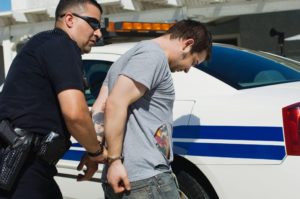Police officers must use probable cause to conduct a lawful search, make an arrest, or obtain a warrant. In a DUI case, the officer must have reasonable suspicion and probable cause to make an arrest. 
To establish probable cause, an officer must have far more than a “feeling” or even reasonable suspicion that a person may have committed a crime. For example, a cop would not be exercising probable cause if they said “I just had a hunch that this person was hiding an illicit substance in their console.”
Probable cause has a slightly higher standard than reasonable suspicion, but certain laws in Pennsylvania have controversially opened the doors for potentially unlawful or unwarranted arrests. One of those laws was thankfully overturned in 2020, but plenty of unlawful DUI arrests are still made across the state.
If you were arrested for DUI in Pennsylvania, you need an attorney to ensure that your arrest was lawful. Your charges may be dropped if evidence demonstrates that you were wrongfully arrested due to poor police behavior.
Call Pennsylvania DUI attorney Steven Kellis today at (215) 940-1200. In the meantime, keep reading to learn the differences between lawful and unlawful police conduct based on probable cause.
Situations That Justify Probable Cause
Probable cause is determined on a case-by-case basis. Judges, not police officers, are the ones who will ultimately decide whether or not an officer was behaving lawfully at the time of the search and arrest. The judge will examine all of the circumstances of the search and arrest, and a combination of known facts and circumstances are needed to justify the arrest.
If the judge finds that there was no probable cause for the arrest or search, the officer’s evidence must be thrown out in violation of the Fourth Amendment.
But what exactly does probable cause look like? When conducted lawfully, an officer will first establish reasonable suspicion before they establish probable cause, after which they may make an arrest. Let’s consider an example.
You meet some friends at a bar for a few drinks. You had a few too many, but you decide to drive yourself home. You exit the bar and walk to your vehicle.
A police officer sees you walking unsteadily towards your car and dropping your keys. He observes you getting in the car, starting the ignition, and swerving out of the parking lot. Due to the officer’s observations of you leaving the bar, your unsteadiness, clumsiness, and swerving, they can pull you over based on the reasonable suspicion that you are intoxicated. It’s not a crime to be intoxicated, but it is a crime to drive while intoxicated. That’s why the officer must establish reasonable suspicion and probable cause.
The officer pulls you over, walks up to your window, and notices that your eyes are bloodshot and watery. You roll the window down and the officer smells whiskey on your breath. The officer now has probable cause to arrest you for DUI.
It’s important to understand that police officers also need probable cause to search your vehicle; it’s illegal for them to search your car without probable cause.
However, they may search your vehicle after you have been arrested, as the arrest establishes (or should establish) that probable cause has been met. Unfortunately, some police officers take advantage of drivers and manipulate them into letting them search the vehicle when probable cause has not been established. This is illegal and can lead to you being arrested for something you absolutely should not have been arrested for.
After receiving a DUI, your first course of action should be to call an experienced Pennsylvania DUI attorney at the Law Offices of Steven Kellis. If it occured, he’ll work to demonstrate that the officer was not acting lawfully or in good faith at the time of your arrest.
When Probable Cause Is Not Present
PA probable cause laws dictate that when an officer does not establish probable cause before stopping or arresting someone, any evidence that they may find in that illegal search or arrest will be thrown out in court.
These are just some of the situations in which a police officer can unlawfully conduct a search and/or arrest for DUI:
- Arresting someone after they pass a Field Sobriety Test
- Not having any sensory indicators of impairment (such as visual indicators like bloodshot eyes or visible alcohol bottles in the vehicle, or olfactory indicators like the smell of alcohol or drugs)
- The suspect was not in actual physical control of the vehicle
- The DUI checkpoint was not well-marked or plainly visible
- The police officer does not receive consent to search the suspect’s vehicle before doing so.
Any of these situations could be instrumental in fighting the case against you. To learn more about PA probable cause laws, contact attorney Steven Kellis at (215) 940-1200.